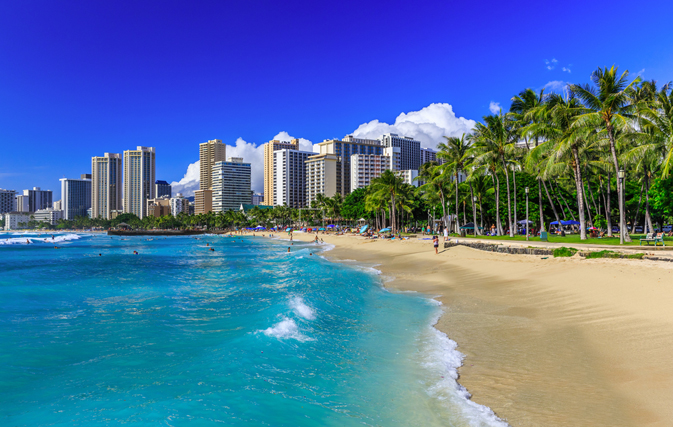TORONTO — George D. Szigeti, president and CEO of the Hawaii Tourism Authority (HTA), provided an update on HTA’s monitoring of travel demand for the Hawaiian Islands after a false alert of an inbound missile to Hawaii was mistakenly issued on Jan. 13 by the Hawaii Emergency Management Agency.
“Thankfully, we have seen little to no impact in travel demand for the Hawaiian Islands in these first few days following the false alert of an inbound missile threat to Hawaii that was mistakenly issued by the Hawaii Emergency Management Agency.
“We are monitoring this situation closely and maintaining continuous contact with our tourism marketing partners in 10 global travel markets. Thus far, just a small number of concerns have been reported by travellers or travel trade professionals in these markets about coming to Hawaii.”
Szigeti also noted that only a handful of inquiries regarding the false alert have been made as of Jan. 18 to the Hawaii Visitors and Convention Bureau’s call centre, which takes calls and emails from people throughout the U.S mainland interested in travel to Hawaii.
“We are also in contact with the visitor industry locally about potential impacts to their businesses. Industry partners are understandably angry about the false alert, but none have reported to HTA an undue number of cancellations since it was issued,” he added.
The HTA already has in place a strategic marketing program to elevate Hawaii’s brand and help drive travel demand for the Hawaiian Islands in each of its 10 global markets. According to Szigeti, if HTA sees an increase in trip cancellations or a decline in future bookings due to the false alert, it will immediately assess and take the “necessary actions” to help reverse such a trend from continuing.
“Tourism can be a fragile industry and the confidence of travellers in booking trips can be shaken by an incident like this. Fortunately, in these first few days, the impact on travel to Hawaii appears to be minimal, if at all. Hopefully, that will continue to be the case but we won’t know for certain for several more weeks until we can monitor trends in airline and hotel bookings and gauge the sentiments of travellers,” he said. “We will be doing this knowing how vital the tourism industry is to supporting jobs and the economic well-being of families and communities statewide.”
The message Szigeti hopes travellers will take away is that there is “no cause to cancel trips already booked to Hawaii or to look elsewhere for a vacation because of this false alert. Hawaii is and continues to be a safe, secure and welcoming destination to all visitors from around the world.”

